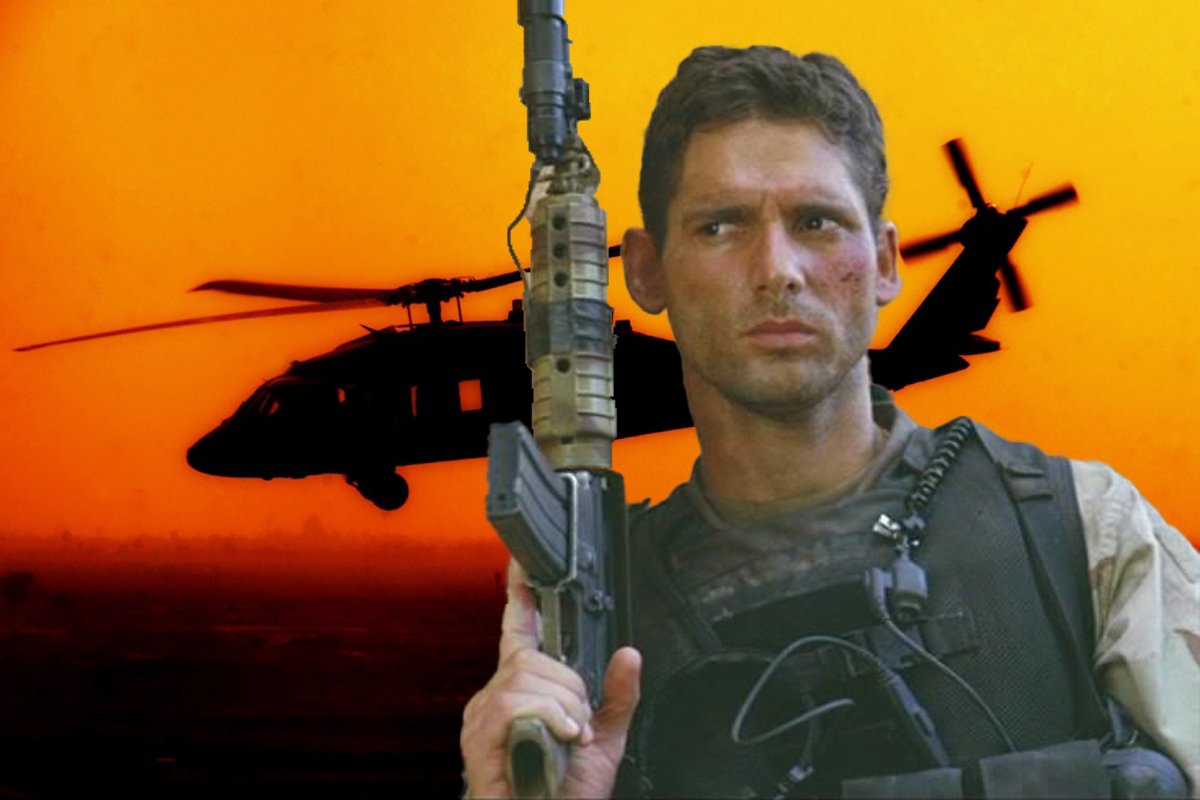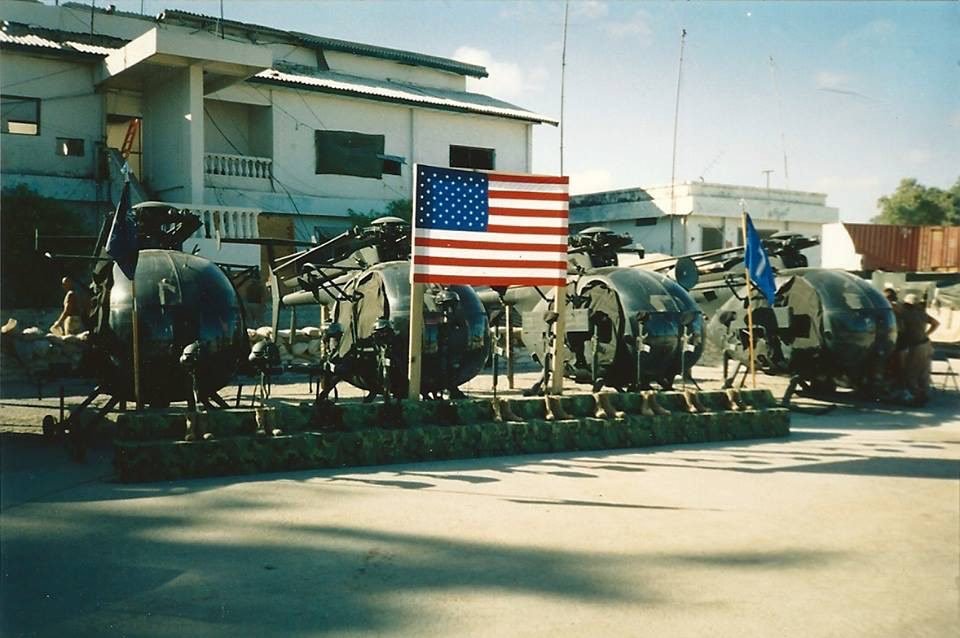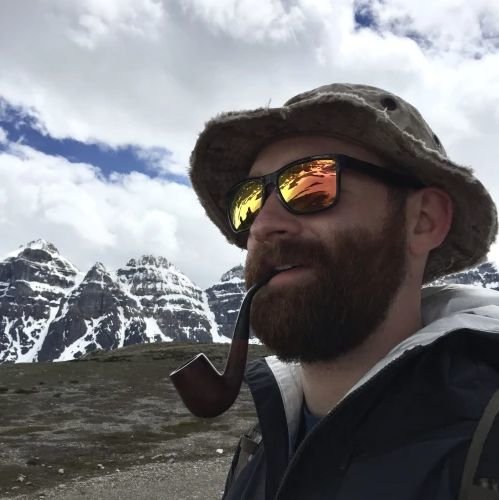
Black Hawk Down remains a favorite war movie for many, but there’s a lot that happened behind the scenes most people don’t know. Composite by Coffee or Die Magazine.
Black Hawk Down, Ridley Scott’s blockbuster celebration of the modern American war machine, hit theaters just four months after the Sept. 11 terror attacks. The coincidental timing meant that the film premiered to audiences brimming with patriotism and a burning desire to see those responsible for the attacks punished. The Somali militants portrayed in Black Hawk Down were not members of al Qaeda, but for American moviegoers they were close enough. The film was a massive success, raking in more than $170 million.
Standing in stark contrast to the anti-war films of the Vietnam era, Black Hawk Down saluted America’s warriors and their combat prowess — and at a time when their countrymen were depending on them to ensure another 9/11 didn’t happen again. It didn’t take a great deal of imagination for audiences to conflate the dramatized slugfest between American commandos and Somali guerrillas to the battles then being waged in the mountains and cities of Afghanistan. After all, some of the troops involved in the latter were veterans of Mogadishu.

Two decades later, Black Hawk Down is still widely regarded as one of the best war movies Hollywood has ever made. Its gritty combat sequences and realistic depictions of battlefield trauma make up for the film’s more questionable aspects, like the borderline jingoistic depiction of fearless Americans laying waste to a horde of nameless Somalis, as if they were a frontier cavalry troop fending off waves of fanatical Indians. Furthermore, Scott succeeded in capturing the true magnitude of the battle. By the time the last shot was fired, 18 Americans and an estimated 1,000 to 1,500 Somalis lay dead in the streets of Mogadishu.
In addition to all the epic moments stuffed into the 144-minute film, there are plenty of interesting stories from behind the scenes. Here are five things you probably didn’t know about Black Hawk Down.
The Movie Almost Had to Get Made Without Actual Black Hawks
The Department of Defense was initially concerned the film would portray the battle in a negative light and hesitated to loan the crew any UH-60 Black Hawks. Negotiations were so drawn out that director Ridley Scott arranged to rent several UH-1 Hueys from Germany instead. Which would have been problematic because Black Hawks look markedly different from Hueys. Luckily, the DOD got on board a month after filming commenced, just in time for the Black Hawks to appear in the initial raid sequence.
The Somalis Were Not Called ‘Skinnies’ Because of Their Gaunt Appearance
The battle took place in the midst of a famine sweeping across Somalia. Soldiers in the film can be heard calling the Somalis “Skinnies,” but the moniker actually has nothing to do with their physical appearance or the country’s dangerous lack of food. The name comes from Robert Heinlein’s Starship Troopers. In it, members of an alien race that threaten to wipe out humanity are known as Skinnies. At the time of the battle, the book was popular among members of Task Force Ranger, who transferred the nickname to Somalis.
Real Footage and Audio Clips From the Battle Were Used in the Film
The film was largely shot in Morocco, with members of the Royal Moroccan Army playing the roles of the Somali militiamen. Despite not shooting any scenes in Somalia, the movie does contain real footage and radio traffic from the battle. When Maj. Gen. Garrison is shown in the command center, the monitors he is watching show actual satellite images from the battle.
The Actors Wrote on Their Helmets to Help Audiences Keep the Characters Straight
In the film, the Rangers — wearing helmets with desert camouflage covers — are easily distinguishable from the Delta operators who wear black bump helmets. To further differentiate the characters, Scott had the actors portraying Rangers write the names of their characters on the fronts of their helmets. This is historically inaccurate and was done solely to aid the audience.
The Actors Received an Anonymous Letter Signed by Those Killed During the Battle
In order to prepare for their roles, the actors had to undergo extensive military training designed specifically for their characters. Those portraying Rangers went to a two-week training course at Fort Benning, Georgia, while those acting as Delta operators went to Fort Bragg, North Carolina, to train with 7th Special Forces Group. Ron Eldard — the actor who played 160th SOAR pilot Michael Durant — went to Fort Campbell, Kentucky, where he was lectured by several pilots, including the real Durant.
On their final night of training, the actors portraying Rangers received an anonymous letter slipped under their door, thanking them for their hard work and asking that they “tell our story true.” It was inked with the names of all the Rangers killed in the battle.
Read Next: John Wayne and ‘The Longest Day’: 5 Things You Probably Didn’t Know

Mac Caltrider is a senior staff writer for Coffee or Die Magazine. He served in the US Marine Corps and is a former police officer. Caltrider earned his bachelor’s degree in history and now reads anything he can get his hands on. He is also the creator of Pipes & Pages, a site intended to increase readership among enlisted troops. Caltrider spends most of his time reading, writing, and waging a one-man war against premature hair loss.
BRCC and Bad Moon Print Press team up for an exclusive, limited-edition T-shirt design!
BRCC partners with Team Room Design for an exclusive T-shirt release!
Thirty Seconds Out has partnered with BRCC for an exclusive shirt design invoking the God of Winter.
Lucas O'Hara of Grizzly Forge has teamed up with BRCC for a badass, exclusive Shirt Club T-shirt design featuring his most popular knife and tiomahawk.
Coffee or Die sits down with one of the graphic designers behind Black Rifle Coffee's signature look and vibe.
Biden will award the Medal of Honor to a Vietnam War Army helicopter pilot who risked his life to save a reconnaissance team from almost certain death.
Ever wonder how much Jack Mandaville would f*ck sh*t up if he went back in time? The American Revolution didn't even see him coming.
A nearly 200-year-old West Point time capsule that at first appeared to yield little more than dust contains hidden treasure, the US Military Academy said.












